
A happy holiday hike turned into a holiday horror for four great mates from Loughborough. A series of slip-ups led to a night of terror for all of them.
Everything that could go wrong did go wrong that summer night, as rough seas and an incoming tide trapped the soaked and injured four against the steep, crumbling and unstable cliffs. The unenviable way out was up the cliffs... with stinging nettles and palm-shredding brambles offering the only hand-holds.
University students Luke, Josh, Alfie and Joe all agree that it was the most terrifying time of their lives. Fuelled by mint choc chip ice creams and cans of mango-flavoured energy drink, they set off on an afternoon coastal walk from Robin Hoods Bay back to their holiday home in Whitby, looking for fossils along the way.
But within a couple of hours, all the fun faded fast when they were caught out by the tide. Worse still, they were in a remote area with no mobile phone signal to call for help. They were forced to scramble frantically over huge, slippery boulders in the dark to get away from the water, often falling into the chilly sea and crying out as they hurt themselves on the rocks. They all thought at least one of them would die.
Alfie said:
“We went from believing we were invincible to realising that the sea can snatch lives in seconds. We'll never forget that HM Coastguard saved our lives that night and we learned our lesson the hard way.”
The students all know they had a lucky escape and want to share their story as part of HM Coastguard's ‘Coast Clever’ summer safety campaign to help others avoid getting into the same danger.
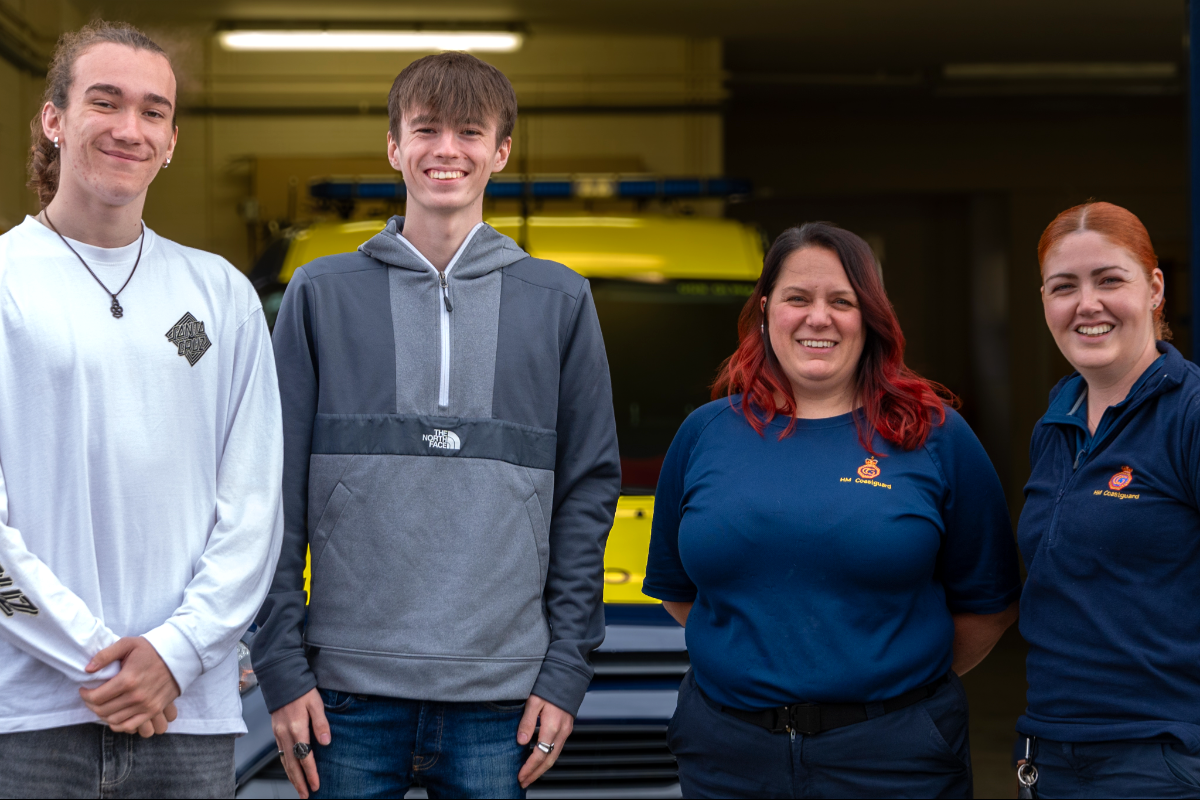
The four were wearing trainers and summer gear and were looking forward to getting back in time to meet up with their other two friends for the last night of their North Yorkshire holiday.
They’d calculated the five-mile walk would take a couple of hours but they now know they made two critical errors.
They’d done the right thing by checking the tide times but had looked at the times further up the coast and not factored in the bays and small headlands between the start of their walk and Whitby. The incoming tide pounds the headlands and fills the bays, coming in at unexpected angles.
Instead of walking the signposted coastal cliff path, they took the worst possible route, under the wrong assumption that it was a sandy beach walk with plenty of options to get back up to the cliff path. Instead, around every corner, the sand disappeared to be replaced by jagged boulders and there were no paths to safety.
Joe recalls:
“It was getting dark, we could see the tide coming in very quickly and we could see no way out. Our phone batteries were also running low, so we had to take it in turns to use our phone torches. We were all getting very stressed and I really thought we were goners,”
Josh added:
“When we realised we’d have to try and get up the cliffs out of the way of the rising water, our panic increased. The cliffs were just scrub and kept giving way under our feet and we had to grab onto brambles to steady ourselves. We were so scared we wouldn’t survive that we recorded messages for our loved ones on our phones.”
In the cold and dark, Joe and Luke were surprised to discover a rope that seemed to be secured and lead up the cliffs. The four discussed their options, knowing that climbing cliffs without the right knowledge or equipment is highly dangerous. It is also never advised by HM Coastguard. Alfie and Josh opted to stay put, but Joe and Luke decided to take the risk and go in search of help.
Fortunately, Joe and Luke made it to the top of the cliff with only a few more cuts and bruises. They were now in a much safer place but extremely worried about the fate of their mates who were out of sight and hearing around 100 feet below. Luckily a local farmer was still out harvesting that evening and with his help, they called 999 and asked for the Coastguard.
The coastguard rescue team from Whitby quickly arrived and from the top of the cliff, Luke and Joe remained on tenterhooks as they saw the lights of the Whitby RNLI lifeboat. Just moments later over the rescue team’s VHF radios, it was a huge relief that two casualties were safely on board. Their ordeal was over.
The mates vow that in future, they will be more ‘Coast Clever’, Luke said:
“We never want to go through that again, it was a serious fright and we’re just so grateful to our incredible rescuers.
“We learned the hard way that you need to respect the sea. In future, we will plan an outing more carefully by properly checking the tide times, taking more notice of local safety information as well as ensuring we have more spare battery packs for our mobile phones. We’re also planning to get a Personal Locator Beacon (PLB) too because that works when phones don’t,”
Clare Ebison, Deputy Station Officer at for Whitby Coastguard Rescue Team added:
“We’re very pleased that their terrible walk had a good outcome in the end and that Luke, Joe, Josh and Alfie lived to tell the tale.
“Tidal cut offs are very common everywhere at the coast and unfortunately it’s a frequent challenge in our location, with very big cliffs a rugged coastline and the tide comes in at an angle. We advise everyone to take a few simple safety precautions and always check the tide and local conditions and by being ‘Coast Clever’, you can minimise your chances of getting into difficulties.”
The UK has some of the biggest tidal ranges in the world which can easily catch you out. Most coastal locations experience two high tides and two low tides each day, with the water depth changing by as much as 10 metres.
Tide times and heights vary throughout the month – luckily, tides follow a predictable pattern so it’s easy to plan your coastal visit.
Rapidly rising water can trap you in isolated bays, coves or on sand bars, often with little or no warning and no easy escape route.
Read more about coastal safety at Coastal safety | HM Coastguard UK
Reduce the risks by following the HM Coastguard advice:
- Check the weather forecast and tide times before you leave home.
- Explore as the tide is going out and make sure you have time to get back as it comes in.
- Make sure you know where all the exit points are, if you're visiting a beach or bay.
- Tell someone where you are going and what time you expect to return so they can raise the alarm if you’re late
- Take a mobile phone and make sure it’s charged. If you’re walking in a remote location, consider taking a PLB. PLBs are widely available and they are satellite-synced so they will work from anywhere in the world – on land or sea.
- If you get trapped by the tide, try to find a safe location, call 999 and ask for the Coastguard.




 Former Scarborough Athletic Chairman Expresses Confidence in Ground Issue Resolution
Former Scarborough Athletic Chairman Expresses Confidence in Ground Issue Resolution
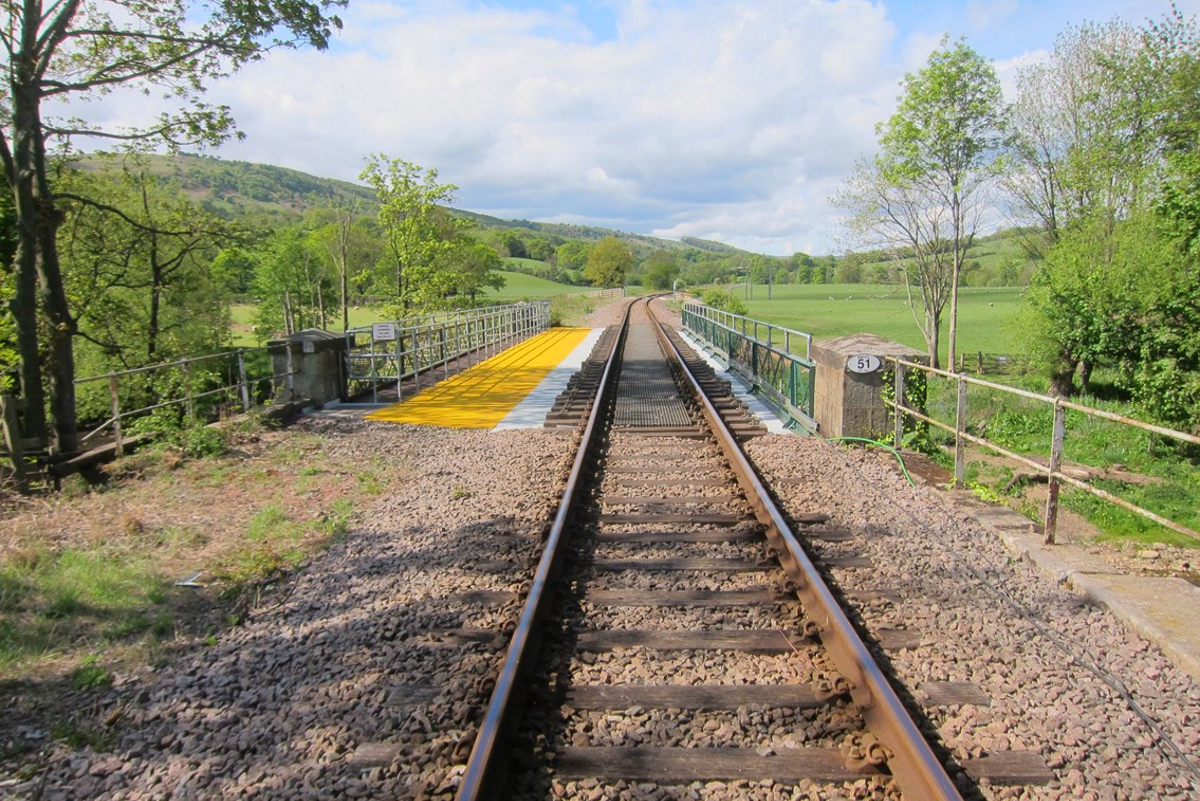 Esk Valley Community Railway Backs Train Use for Whitby School Pupils
Esk Valley Community Railway Backs Train Use for Whitby School Pupils
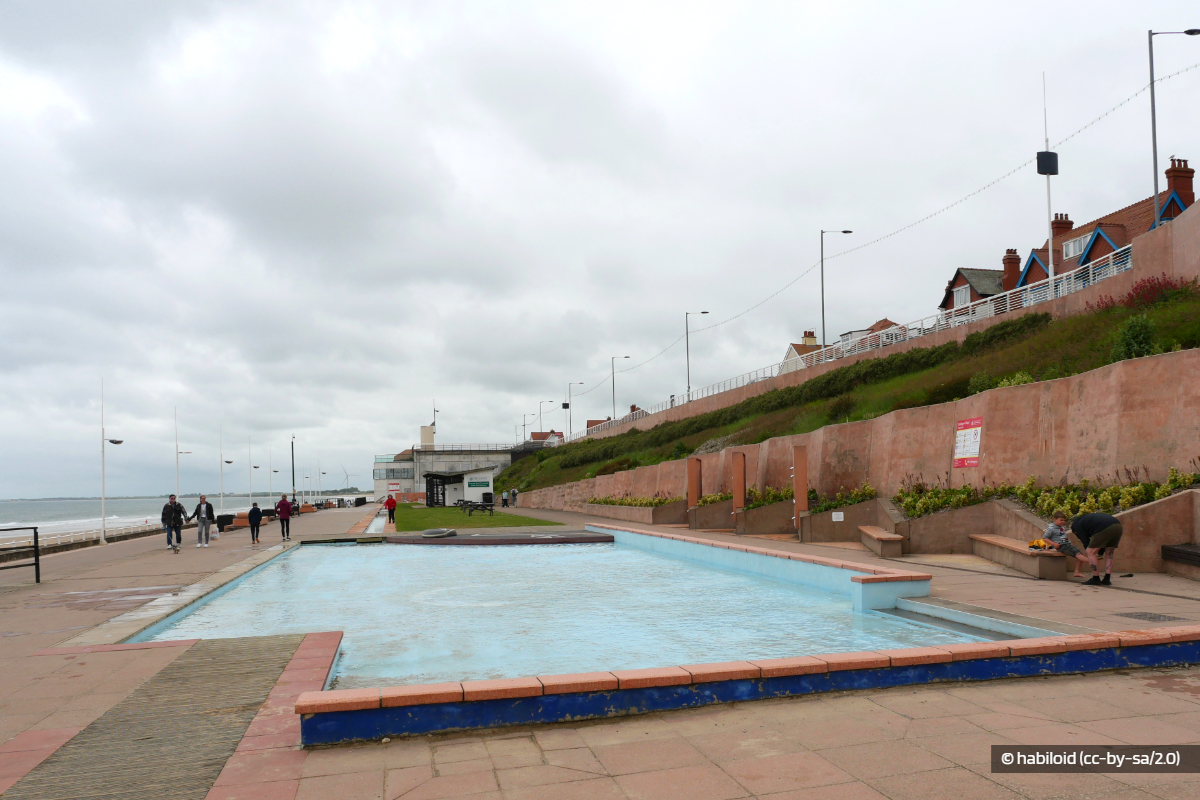 Concern Over Bridlington Paddling Pool Use
Concern Over Bridlington Paddling Pool Use
 Scarborough and Whitby MP Raises Concerns Over PIP Changes at Prime Minister's Questions
Scarborough and Whitby MP Raises Concerns Over PIP Changes at Prime Minister's Questions
 Yorkshire Coast Towns Could Get Share of £1.2m Investment
Yorkshire Coast Towns Could Get Share of £1.2m Investment
 Scarborough Charity's Future Fears
Scarborough Charity's Future Fears
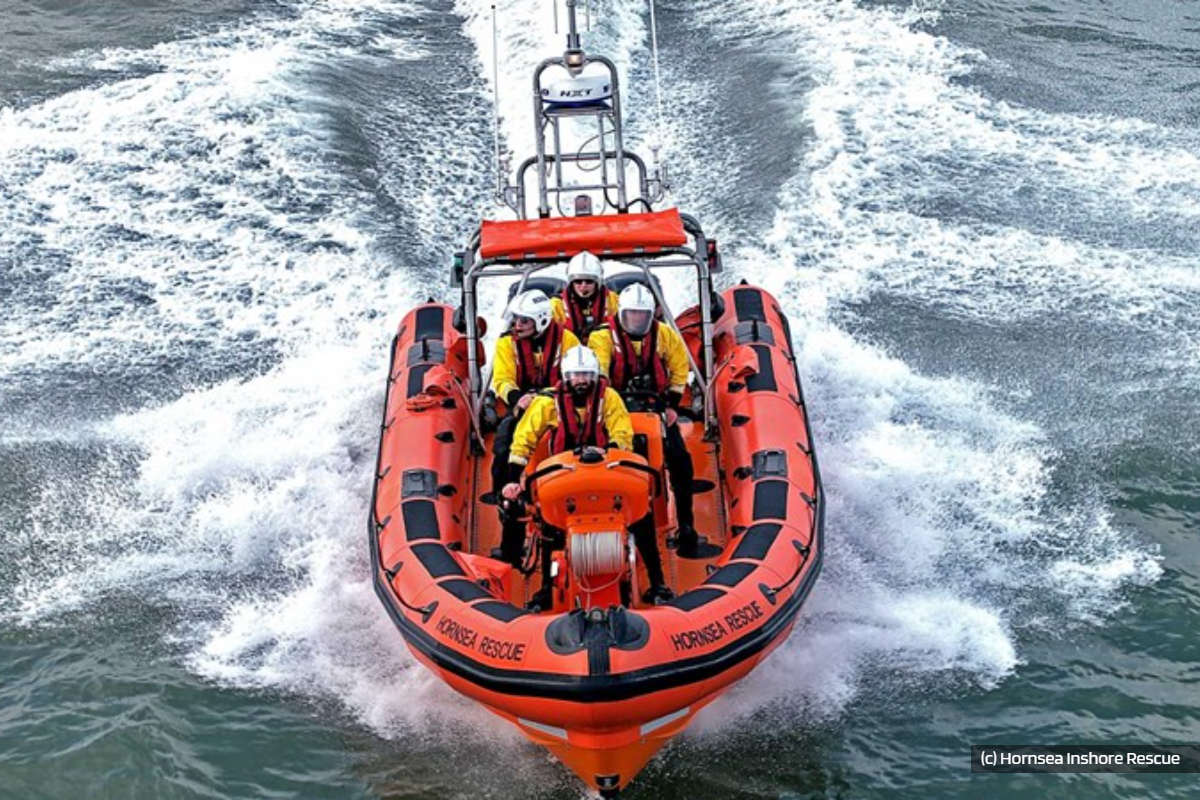 Hornsea Lifeboat Member Among London Marathon Runners
Hornsea Lifeboat Member Among London Marathon Runners
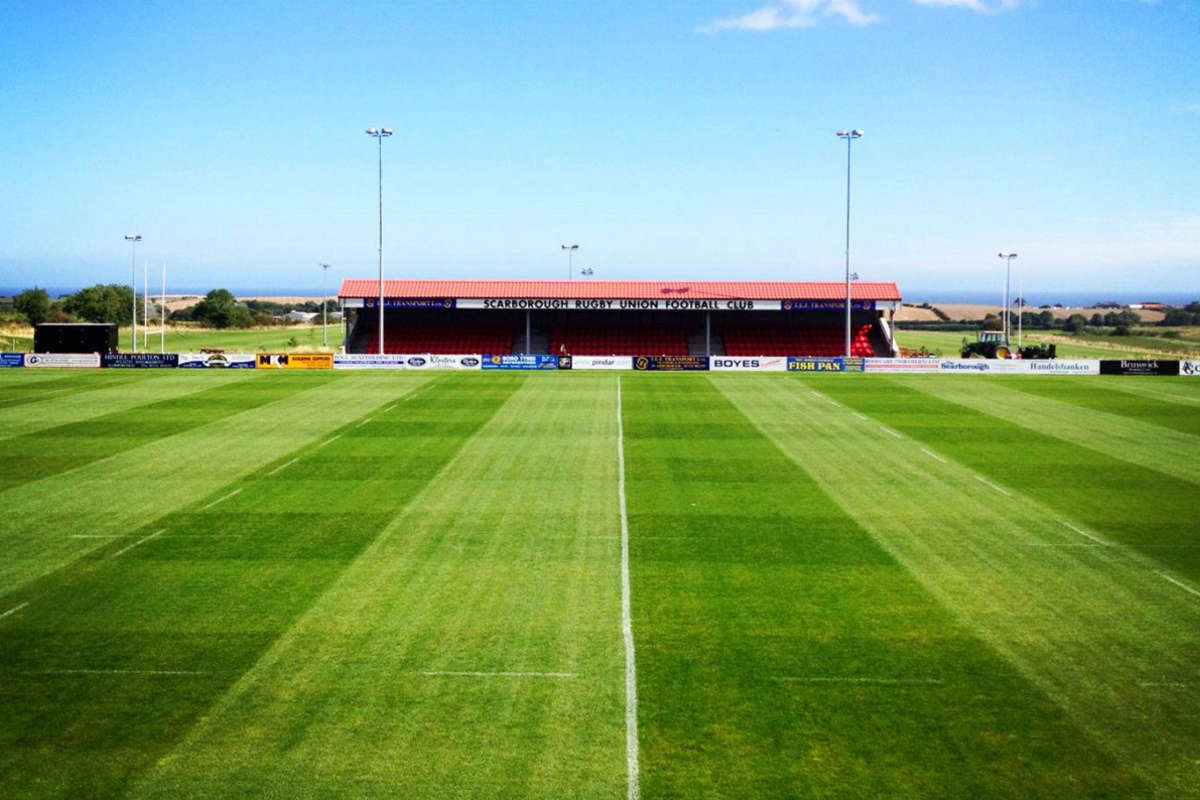 Scarborough Rugby's Cup Progress
Scarborough Rugby's Cup Progress
 Mixed Results For Yorkshire Coast Cricket Sides
Mixed Results For Yorkshire Coast Cricket Sides
 Scarborough Athletic Miss Out On Top Half Spot
Scarborough Athletic Miss Out On Top Half Spot
 Whitby Town Savaged By Table Toppers in Final Clash
Whitby Town Savaged By Table Toppers in Final Clash
 Brid Town Beaten By Belper
Brid Town Beaten By Belper









Comments
Add a comment